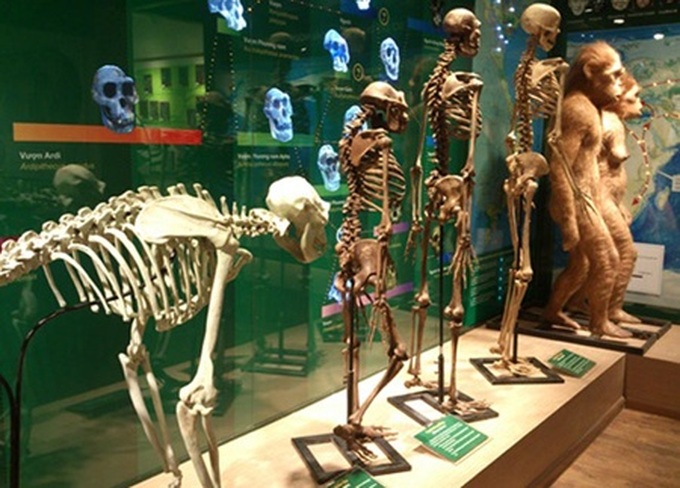The Vietnam National Museum of Nature, designed to be the leading museum of its kind in Vietnam, opened a new exhibition hall on the evolution of living things on Thursday.
 |
| In the beginning: A display on the evolution of living things at the Vietnam National Museum of Nature. |
The display, covering nearly 300sq.m on the first floor of the museum, contains three sections dedicated to the origin of life, the history of life and current life. The venue displays a wide range of specimens to provide a clear presentation of the evolutionary process during different periods of the Earth.
The museum also offers 3Dfilms that educate students on nature and environmental protection.
According to Dr Luu Dam Cu, deputy director of the museum, the museum is responsible for collecting, preserving, displaying and researching objects and documents related to Vietnam's nature with the aim of spreading knowledge and education, carrying out scientific research and promoting tourism.
The museum currently owns a collection of 40,000 specimens, including 400 animal specimens, 4,000 reptile specimens, 400 fish specimens, 300 snail specimens, 20,000 insect specimens and 10,000 flora specimens.
Among the objects on display are ocean sunfish, an 18.5-tonne giant whale, a fossilised crocodile skull and other rare species such as elephants, tigers, bears, monkeys, langurs, peacocks and pheasants.
The museum recently completed a collection of more than 800 fossil specimens of ancient living things 203-175 million years old such as ammonites, bivalves, gastropods and gymnosperms.